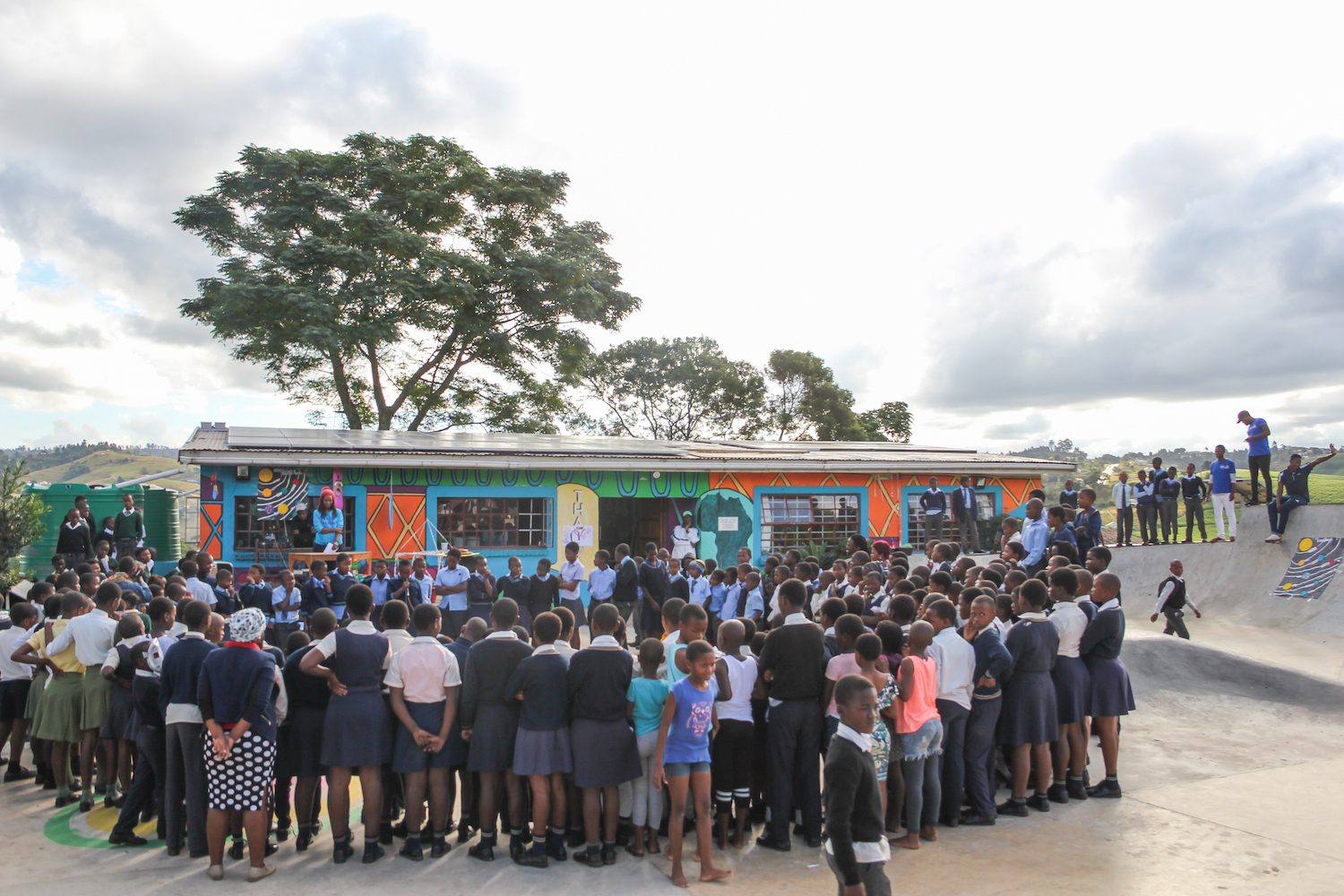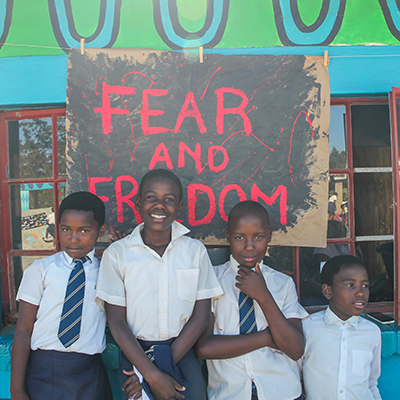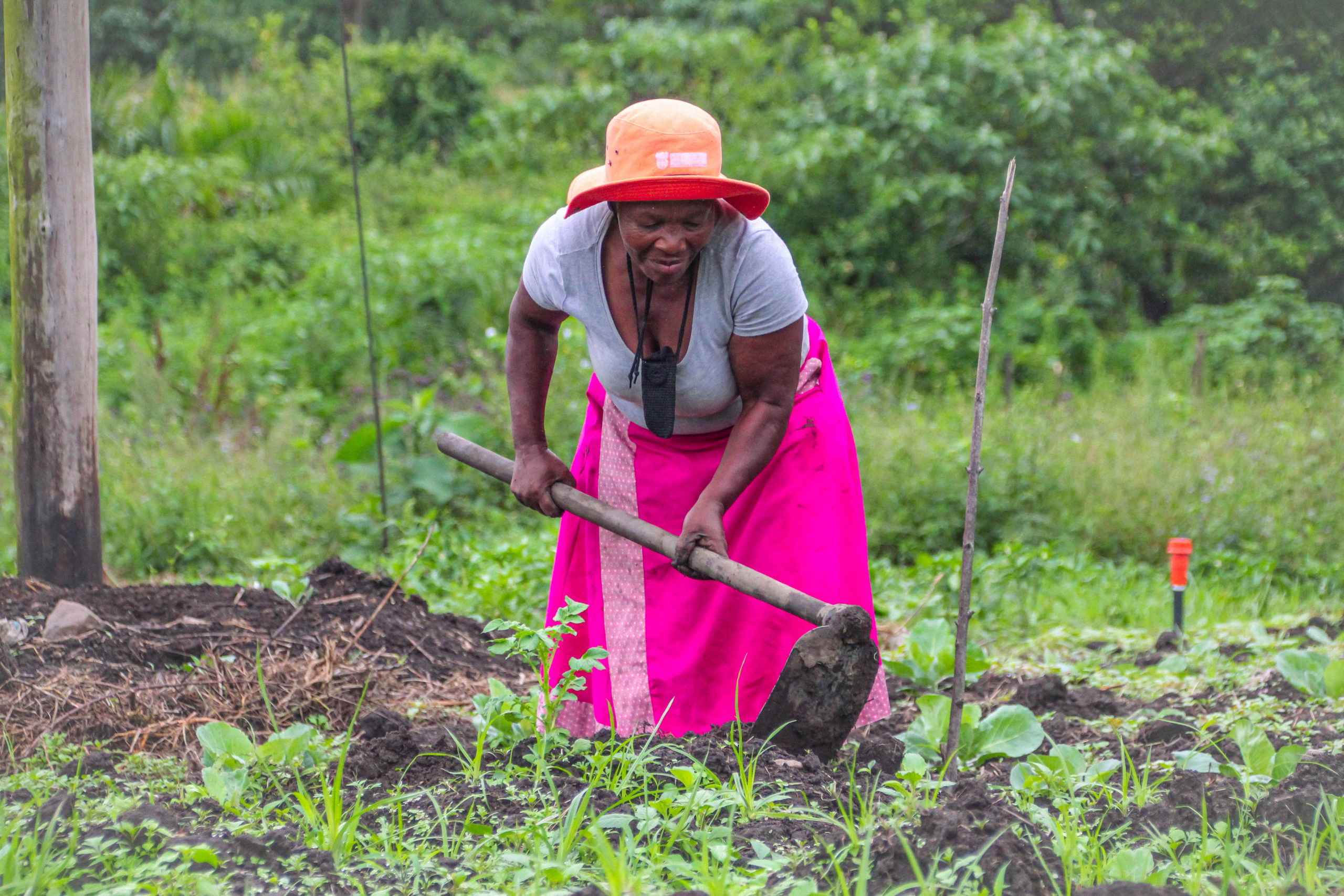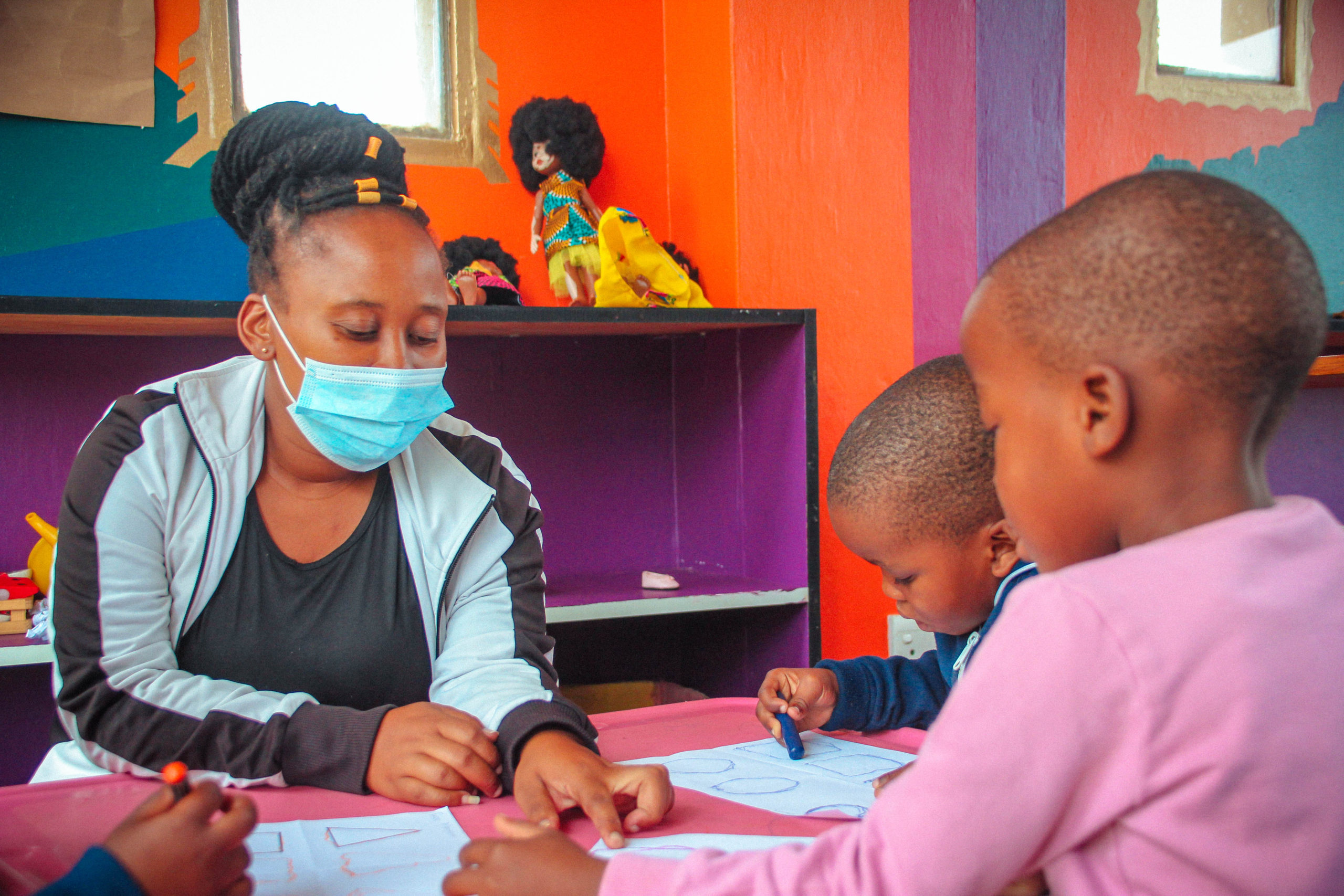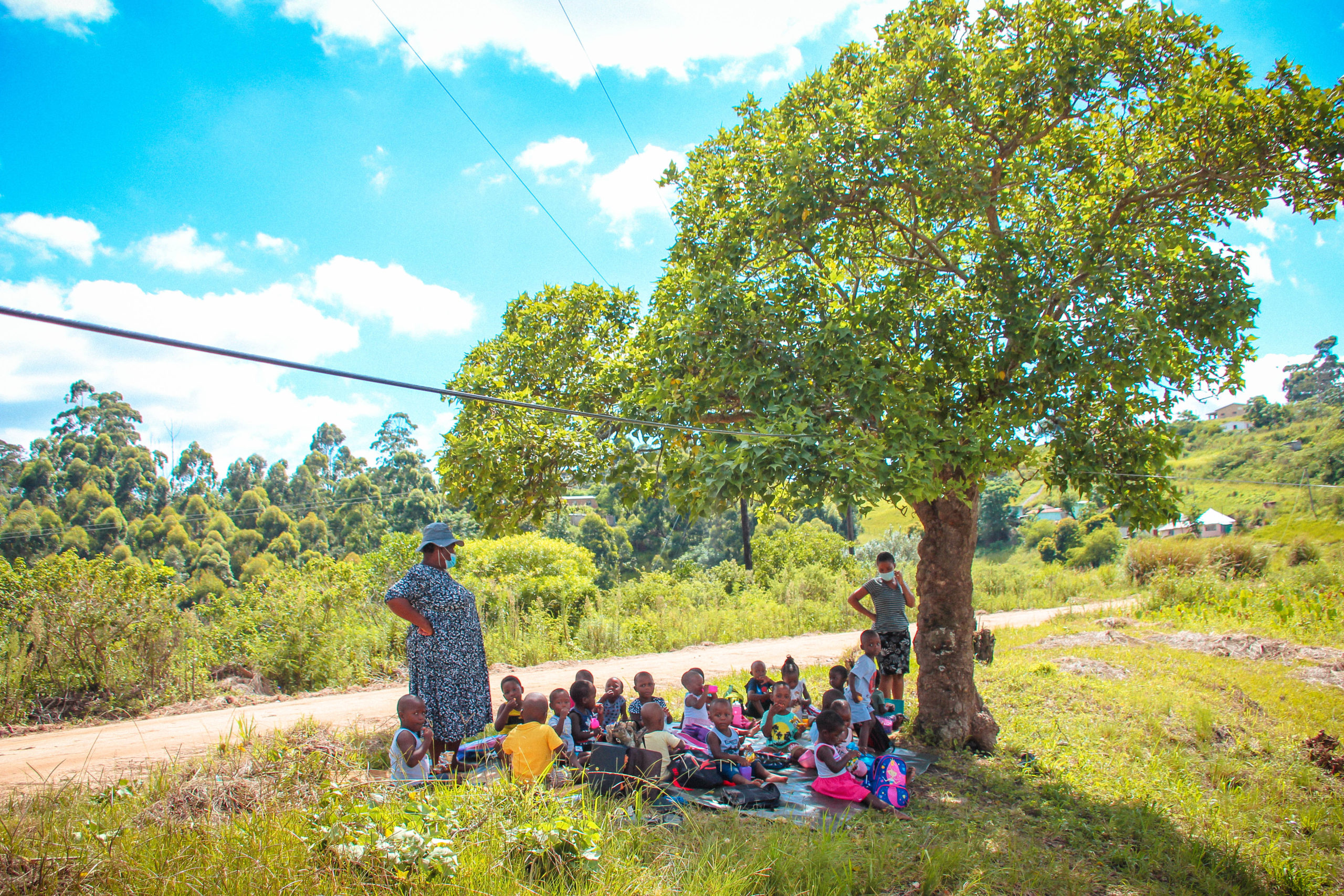Stories are at the heart of everything we do at Thanda. Our goal is to instil a love of reading in every child that is enrolled in our programmes, because when a child opens a book, it opens their world by allowing them to imagine, empathise and identify with characters. It improves their concentration, vocabulary and language skills, and is an essential building block for all other areas of learning. But literacy is looking dire for children in South Africa, with 78% of Grade 4 learners unable to read for meaning and 58% of households don’t even have one book in the home. Together, we’re disrupting that.
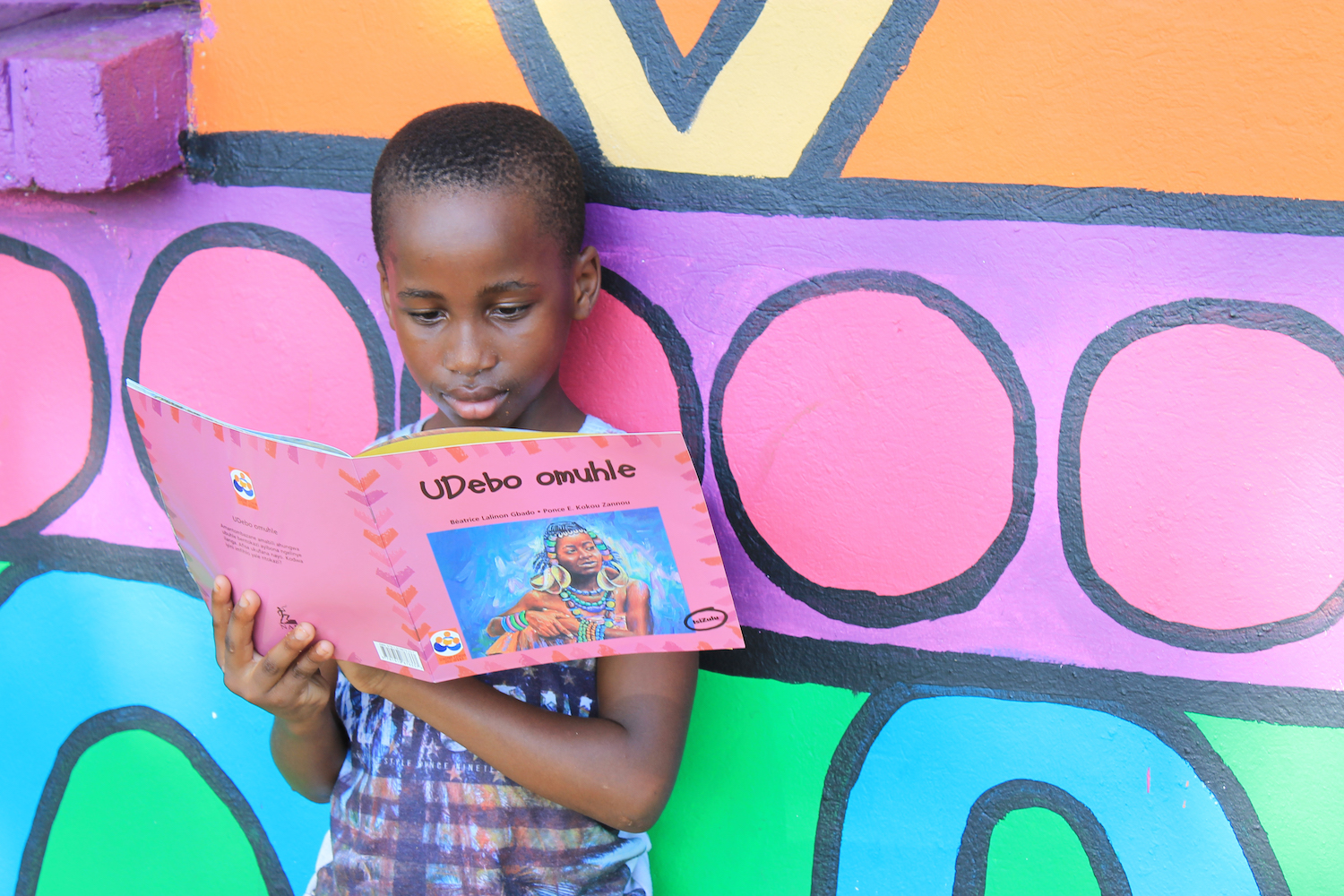
Our Community Centre hosts the municipality’s only library and it is a really important resource for teachers, secondary-aged student writing research papers, and young children. In our After-school programme we work with over 700 children daily and through our Creative Learning Curriculum, we aim to develop Game-changing Skills that are vital to creating the next generation of resilient, confident young adults who understand interconnectedness, rebel against the norm when necessary, and contribute positively to their communities. At the core of our curriculum are stories. We help children understand that if they can read, they can satiate their curiosity by accessing unlimited information, and while they are learning how to read, they are enjoying every minute of it. In fact, not only have the number of books borrowed from the library and Mobile Librarian increased to 9687 so far this year, from 5771 last year, but the Eager Beaver book club has doubled in size too!
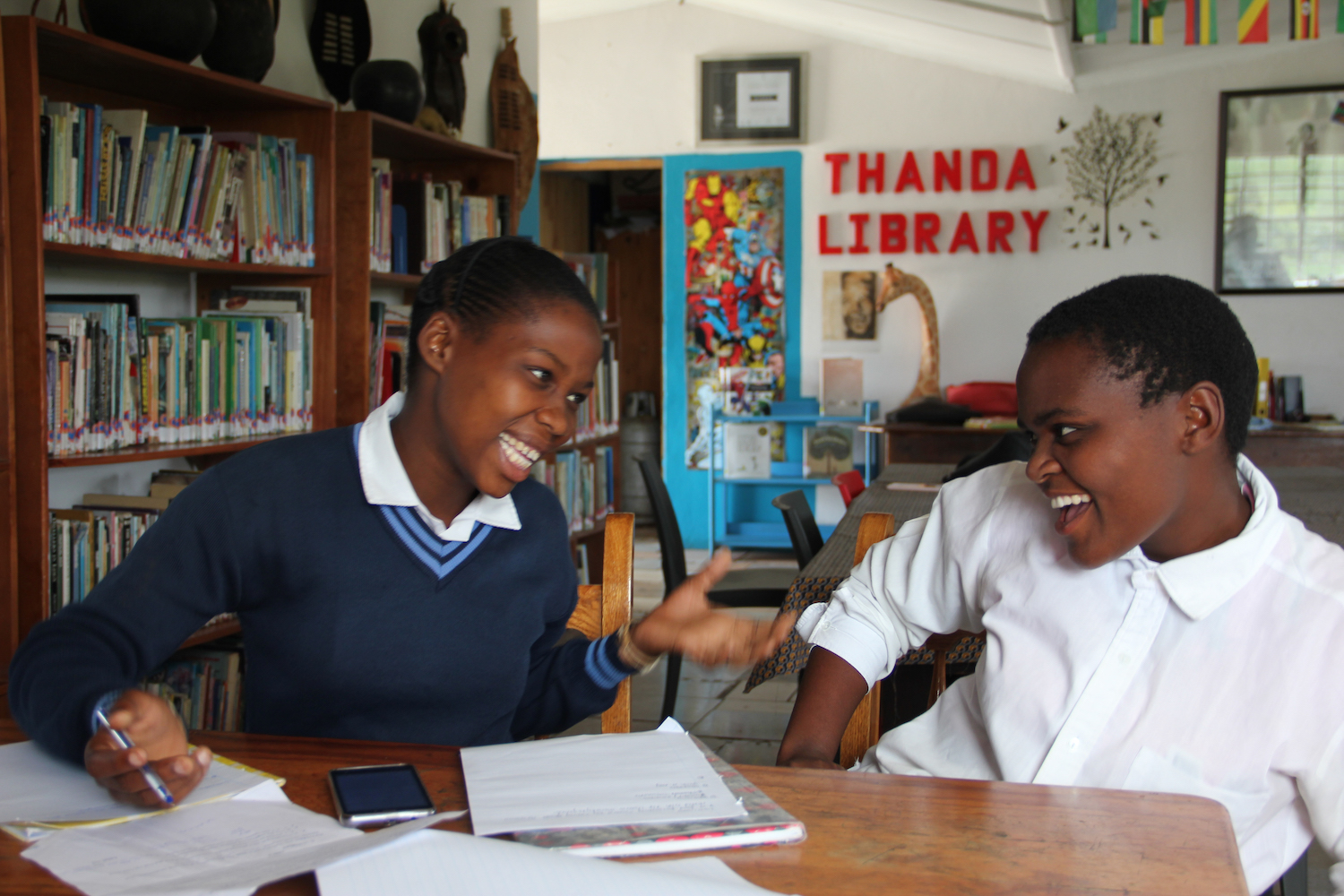
To culminate all of the exciting stories, activities, artwork, songs, and more, we host a book festival twice a year at Thanda. Children from each class develop their own scripts for the book they plan to perform and make masks and costumes for their short productions. While these plays are great fun to watch and take part in, the book festivals give learners the opportunity to become their favourite character, improve their public speaking and also provide an opportunity for children to show that they understand the message in a book, and to put their own spin on the story. It’s also a chance for children from different schools to interact and to play together.
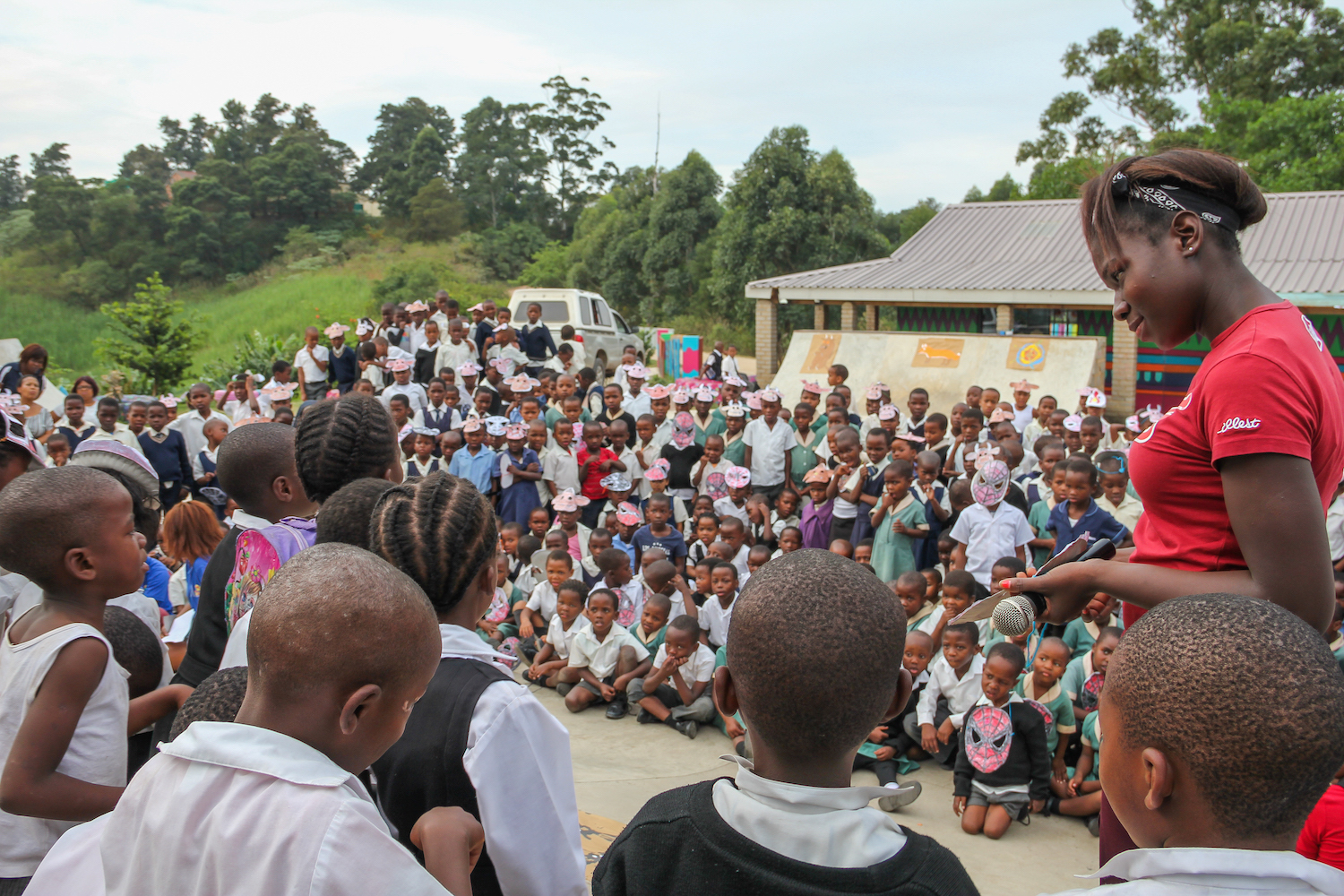
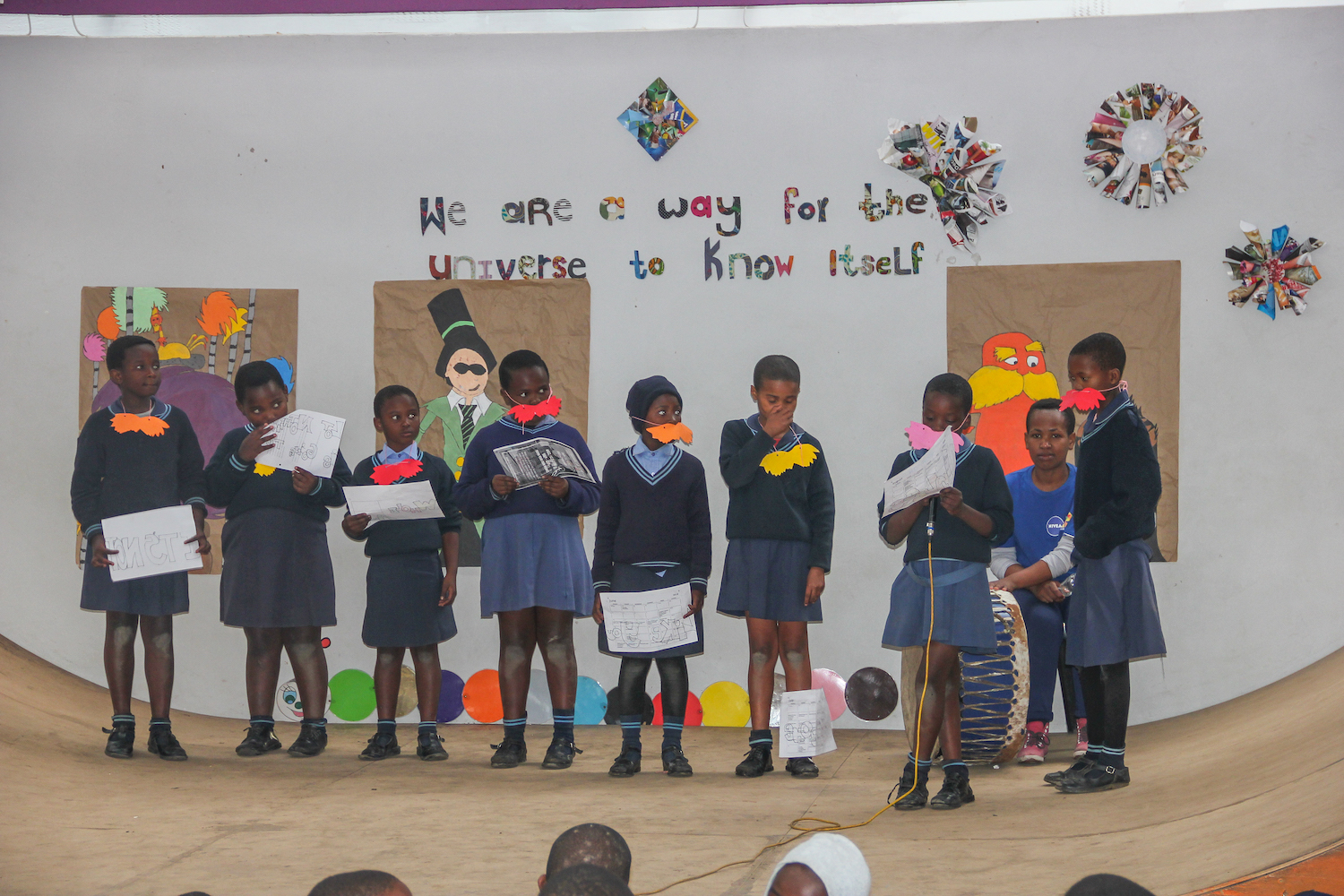
Last month we hosted the second Book Festival of the year, with every grade in the After-school programme taking part. Some highlights from the younger grades book festival include Dibi Facilitator Sli’s Grade 2 and 3 learners speaking for the trees, inspired by Dr Seuss’ The Lorax. When discussing the benefits of presenting at the Book Festival, Sli said, “It also boosts the confidence – giving them the opportunity to present, you find they are becoming more confident about whatever that do.”
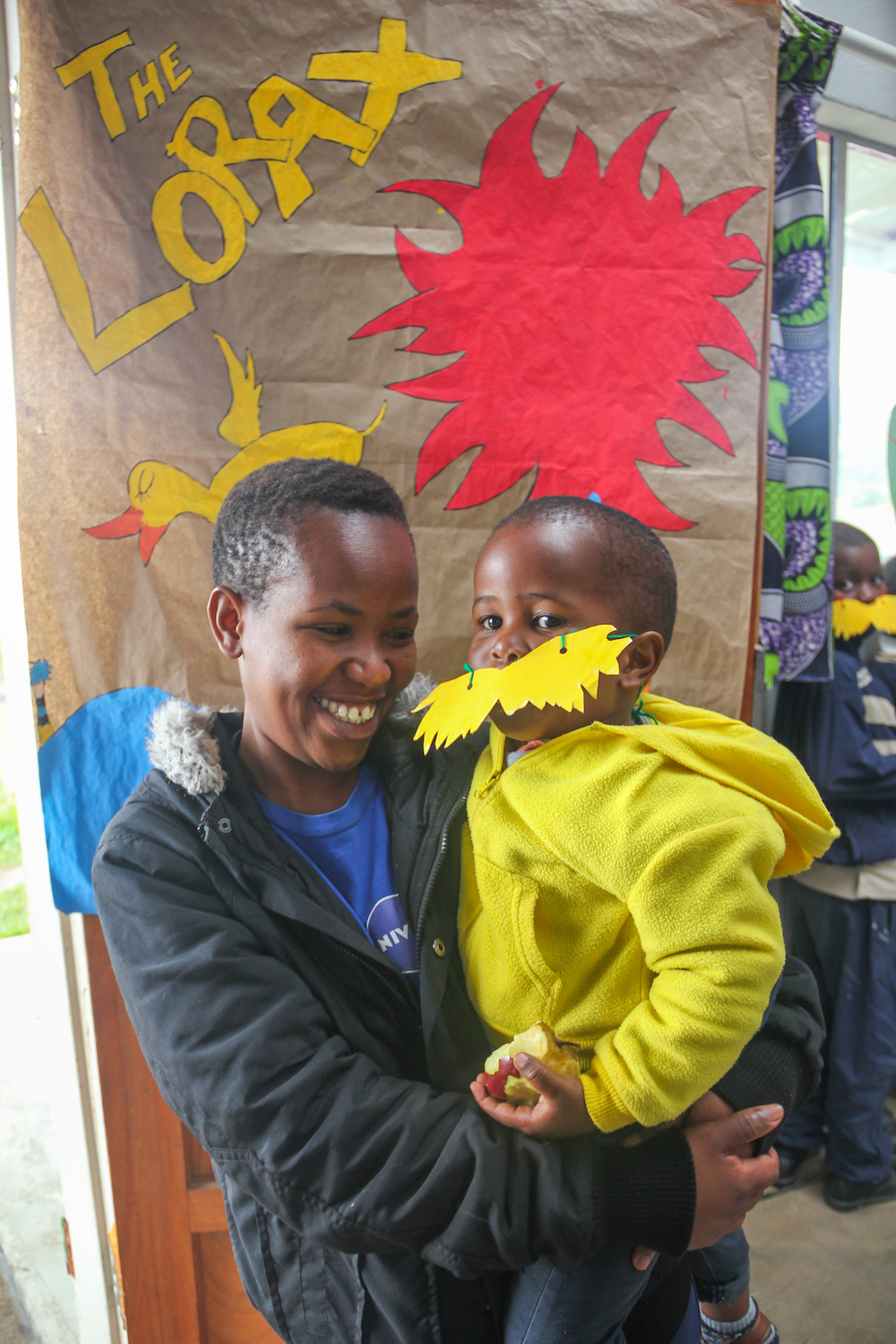
Sli mentions one child in particular whose literacy has dramatically increased, her name is Londiwe. In Thanda Londiwe learned a lot, like writing and reading and Sli says that now Londiwe is one of the top students in her class. Commenting on Londiwe’s improvement, Sli says, “I am really proud of her. Even when we do activities she prefers trying to write in English than writing in Zulu, and I think that the books we have read have helped with that. It’s increased her level of comfort in reading. She takes books out from library, and she makes sure she reads and returns the books – she even reminds me!”

Sli attributes this improvement to the literacy focus at Thanda, where most After-school activities are based about stories. She mentioned the story sequencing exercises they often do, saying that it helps children relax about reading of the book and instead focus on what happens within the plot. Sli explained further, “When I read a story, I read in English and then translate back to them, that way they pick up words easier and do a word association with English and IsiZulu.”
When asked why she enjoys reading so much, Londiwe states, “I want to improve my knowledge of English, so I can speak and understand it.” Her favourite book is Odd Dog Out by Rob Biddulph, which is a book about a young dog discovering the importance of individuality and self-esteem. Londiwe explained that she likes this book because the main dog looks different from the other dogs and is pink. She also really likes the main dogs pink scarf. Identifying with characters within books is a huge part of enjoying stories, as it gives children to opportunity to empathise with main characters as well as discuss why they relate to them safely, without fearing judgement. This is why children love wearing masks, they get to step into their favourite characters and be brave, just like them.
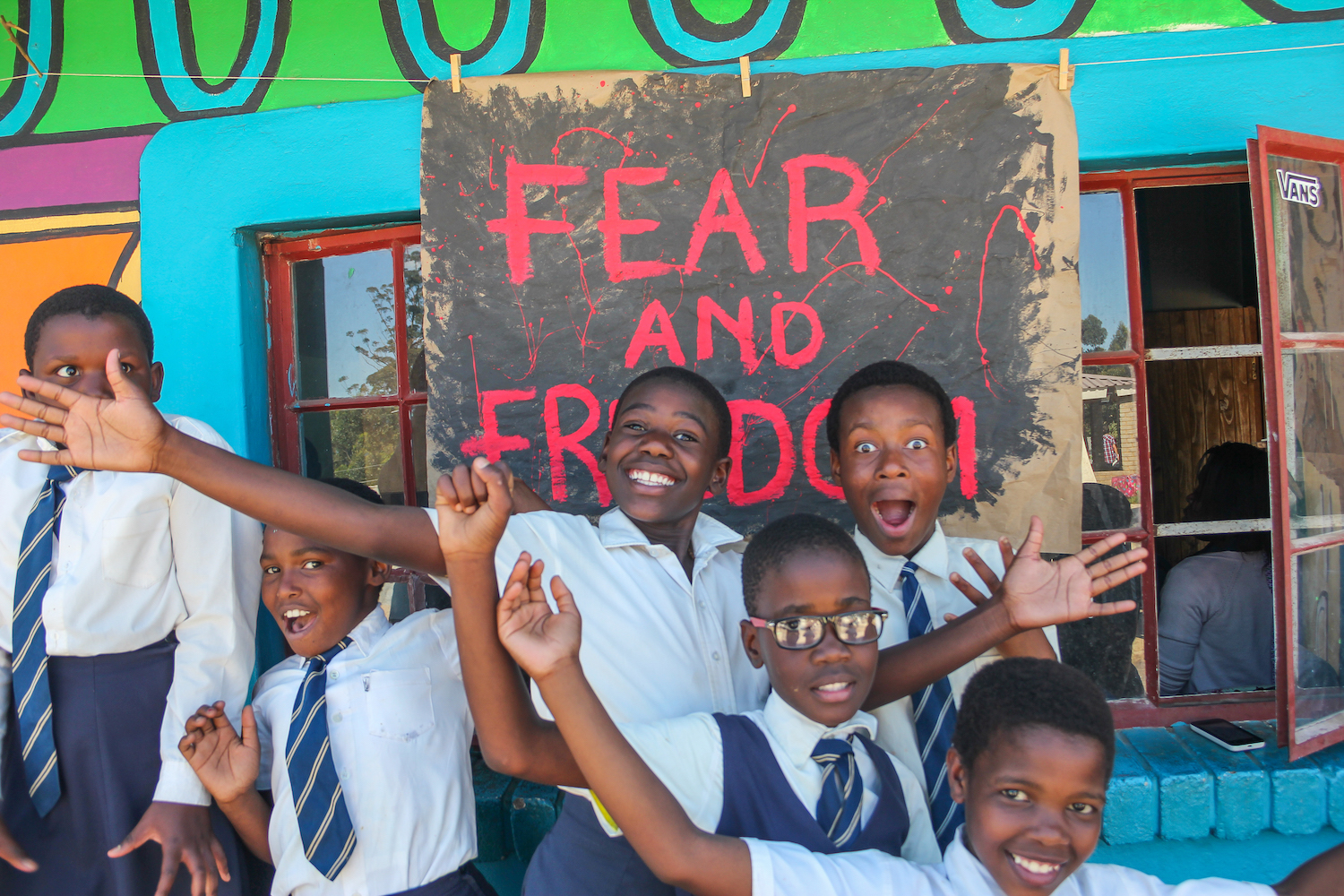
With a similar theme, Grade 4 & 5’s performed one of their favourite books, Maya Angelou’s Life Doesn’t Frighten Me. This powerful poem is written from a child’s perspective, where the speaker talks about difficulties in her life that she has had to overcome and the importance of being brave and conquering your fears.
The Book Festival was vibrant and fun, with the learners having a fantastic time sharing their favourite stories and exploring their dramatic sides. Through these events, children spend more time discussing themes and characters in books, and as such connect with the story on a deeper level. This not only improves their literacy, but also their empathy and self-esteem, reminding them to be the best version of themselves.
